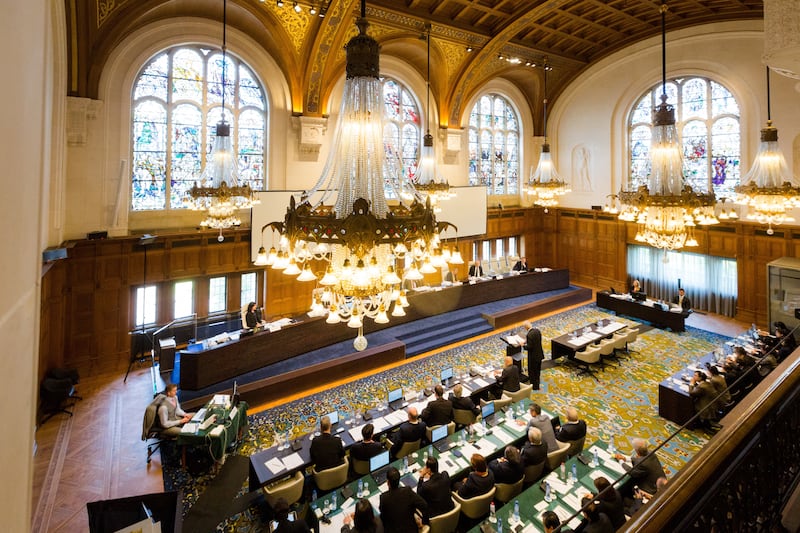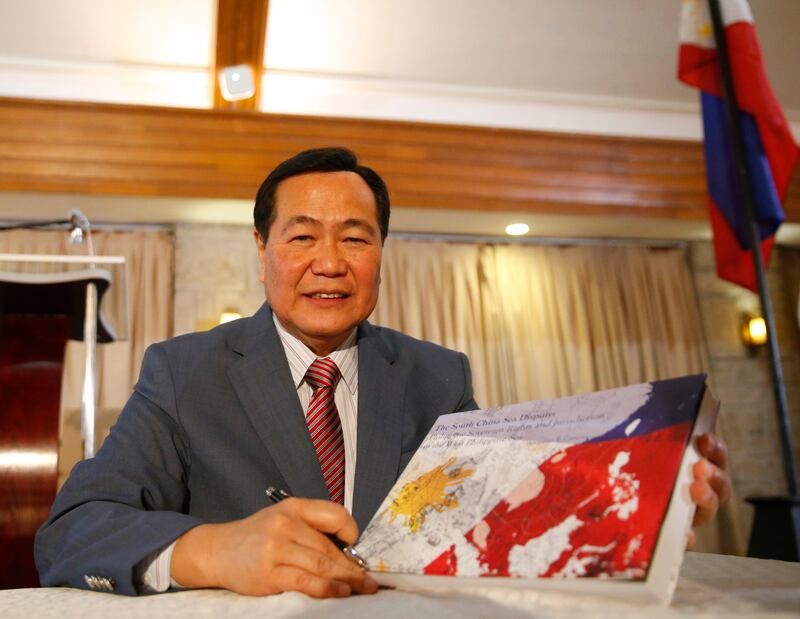Philippine officials have suggested that, in the face of grave aggression from China in the South China Sea, new legal action is not a matter of if, but when.
Jonathan Malaya, assistant director-general of the National Security Council, told a press briefing this week that, being pushed “to the wall,” Manila is considering all options including new international lawsuits.
In 2013, the Philippines filed an arbitration case against China under the United Nations Convention on the Law of the Sea, or UNCLOS, the first time any nation had challenged China over its maritime claims.

Known as PCA Case No. 2013-19, it ended in 2016 in victory for the Philippines, with the arbitral tribunal ruling in favor of the Philippines on most of its submissions and rejecting China’s claim of historic rights to vast areas in the South China Sea using the so-called nine-dash line on its maps.
Nearly 10 years on, China still refuses to accept the ruling despite it being final and binding for all parties concerned.
Renewed efforts
Under former President Rodrigo Duterte, the Philippines and China appeared to have shelved the tribunal’s decision, a loss of opportunity to those who wanted to promote a new legal framework for the South China Sea.
Yet there have been constant calls on the Philippine government since President Ferdinand Marcos Jr. took power to renew efforts to reinforce the ruling, including by filing new cases.

“I have recommended the filing of the following cases before an UNCLOS tribunal,” said former Justice Antonio Carpio, part of the legal team that defended the Philippines' case in 2016. “The first is compulsory arbitration over the overlapping claims in the continental shelf beyond the exclusive economic zone of the Philippines in the Spratlys.”
UNCLOS determines that a littoral country’s exclusive economic zone, or EEZ, measures 200 nautical miles from the shore and the continental shelf may extend beyond the EEZ.
“The second case is compulsory arbitration for damages arising from the ramming by Chinese coast guard vessels of Philippine coast guard vessels,” Carpio told Radio Free Asia, referring to a number of serious incidents over the last few years near disputed reefs including Sabina Shoal and Scarborough Shoal.
“And the third case is compulsory arbitration to establish the rules to govern fishing in Scarborough Shoal which the 2016 tribunal declared is a historic fishing ground of Filipino, Chinese and Vietnamese fishermen,” Carpio added.
China, which took de-facto control of Scarborough Shoal in 2012, has been accused of blocking Philippine ships from accessing the area and harassing them. The world’s largest coast guard vessel 5901, China’s ‘Monster’, has been operating inside the Philippines’ EEZ almost constantly since the beginning of the year to exert control over the Scarborough Shoal area.
Support for UNCLOS
Building upon the 2016 ruling under UNCLOS may be a smart move that could garner international support but a maritime expert suggested that “making greater use of the United Nations would expand Philippine options for arbitration.”
Greg Poling, director of the Asia Maritime Transparency Initiative at the Center for Strategic and International Studies in Washington, wrote in a recent article that even though the U.N. cannot compel China to comply with the 2016 arbitral award “the General Assembly would be able to pass nonbinding resolutions and, most importantly, forward the matter to the International Court of Justice for an advisory opinion.”
Poling suggested that the Philippines could file with the General Assembly a resolution demanding compliance with the 2016 arbitration, which it would win. It could also file another resolution seeking an advisory opinion from the International Court of Justice on issues such as whether China’s behavior violates international treaties, and it could win that, too.
RELATED STORIES
Philippines on Chinese incursions: Not ruling out another South China Sea lawsuit
Philippines says China’s ‘monster’ ship on a mission to intimidate
Lawyer Urges New Legal Case 5 Years after Landmark South China Sea Ruling
He argued that “repeated losses in different international bodies would raise the costs of noncompliance and make a face-saving compromise progressively more attractive” for China.
“International law is not self-enforcing,” Poling said, adding that an arbitral victory is only useful if it could be used to rally international support, impose costs, and eventually compel at least partial compliance by the wrongdoing party.
“We have thought about submitting a resolution before the U.N. General Assembly,” said former Justice Antonio Carpio. “This needs prior lobbying for votes.”
“It would be reckless to ask for a U.N. General Assembly vote unless you have a headcount of how many votes you will get,” the legal expert said.
But that’s when the Philippines’ ally the United States and like-minded nations could come to its support, said Greg Poling.
“The U.S. should lobby other states to vote with the Philippines,” he told RFA.
Edited by Mike Firn.
